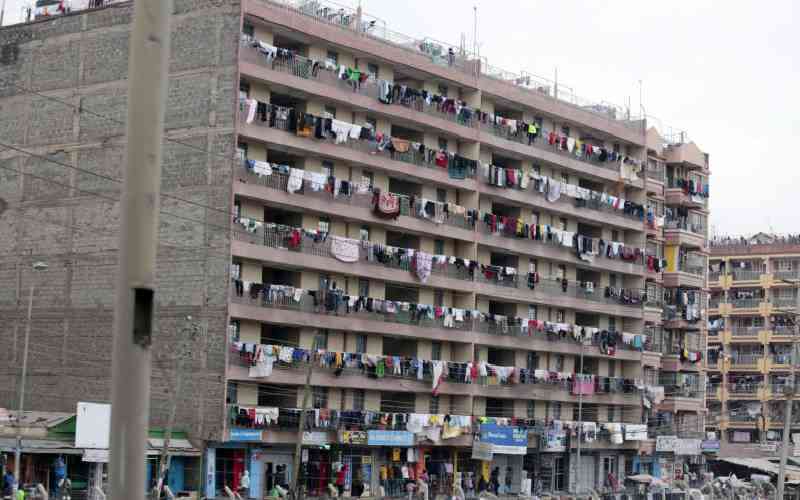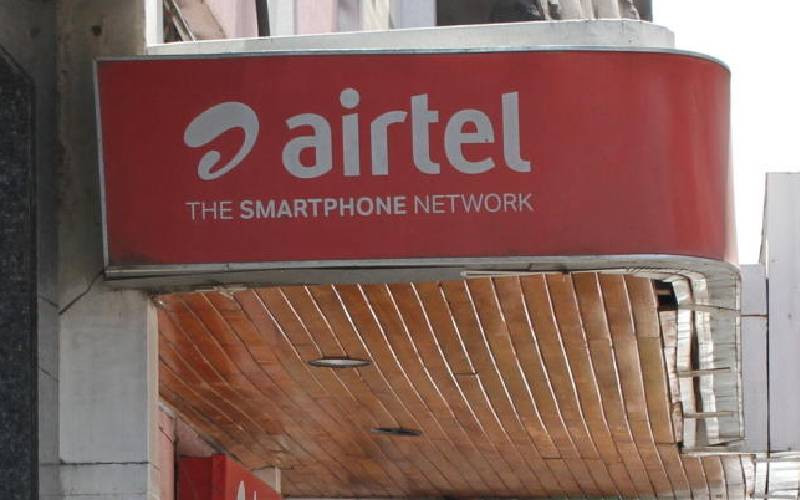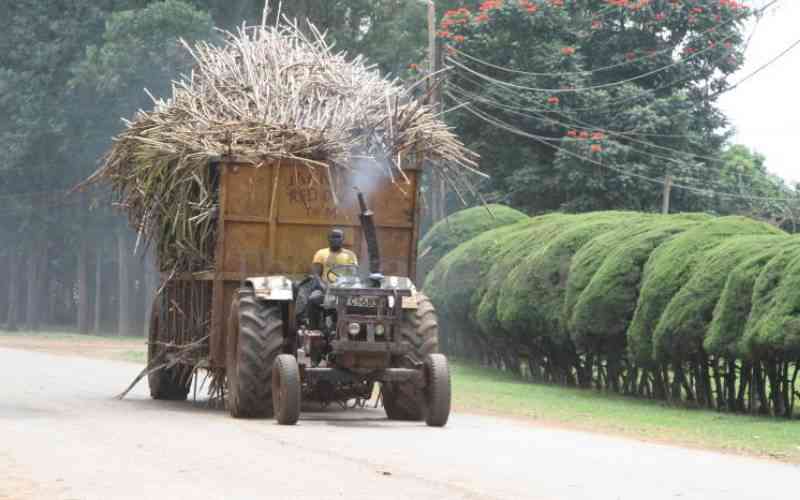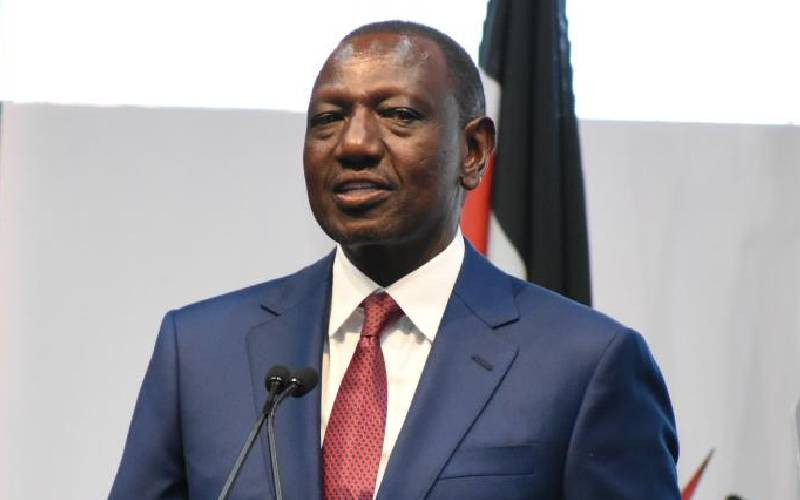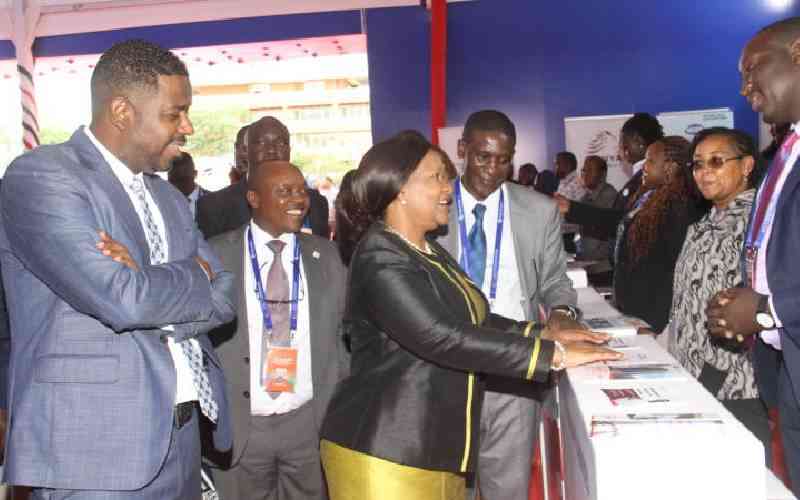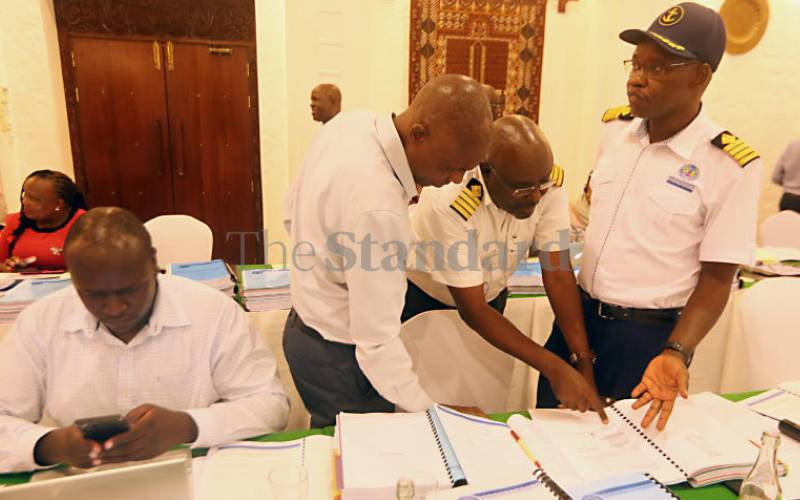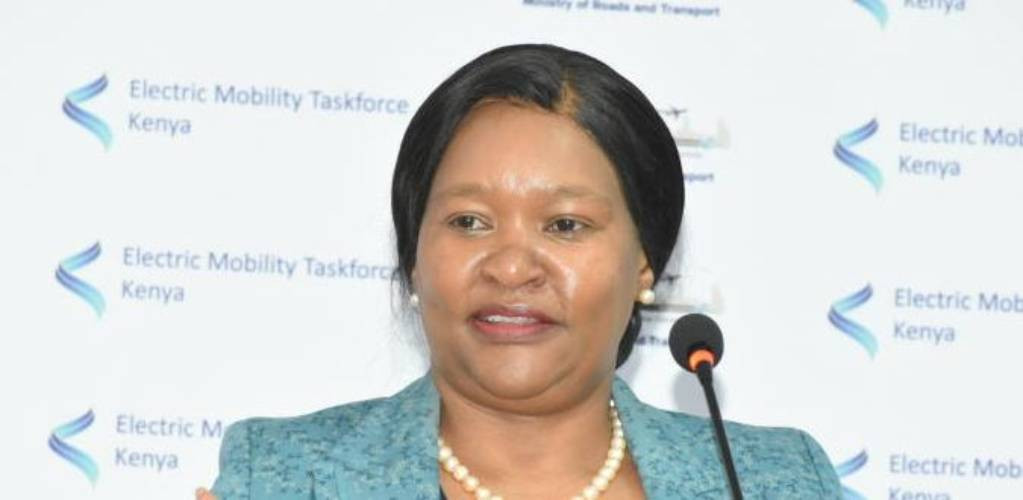By Moses Njagih
Appellate Judge Philip Waki revisited his controversial list of ten names of persons bearing greatest responsibilities for post-election violence as he went through interviews for the Supreme Court judges.
On Monday, he strongly defended his decision against handing over the envelope with the names of suspects to President Kibaki.
Justice Waki was made to explain his past and why he contested allegations that made him appear before a tribunal to investigate his integrity during the infamous radical surgery on the Judiciary.
The judge, who chaired the Commission of Inquiry into the infamous post-election violence, on Monday said his commission had to ensure that political forces did not interfere with the list, hence the decision to give the sealed envelope to former United Nations Secretary-General Kofi Annan. |
Justice Philip Waki answers questions from Judicial Service Commission members on Monday at Anniversary Towers in Nairobi. Photo: Ann Kamoni/Standard |
Waki told the Judicial Service Commission (JSC) panellists that the commission feared that the list of suspects and the recommendations that the team had made could be manipulated if it was left to the whims of the Government.
The judge said he also had to insulate the special tribunal he had proposed be formed to try masterminds of the violence by having the same enshrined in the Constitution to avoid a situation where Parliament could enact a law to outlaw it.
He said the commission further feared that the recommendations they made might as well have been shelved and let to collect dust without implementation, like has happened to reports made by other past commissions. Responding to concerns raised by Attorney General Amos Wako and member Abdulahi Ahmednasir on why he opted to give the envelope to Annan and not the President who had appointed the commission under the Commission of Inquiries Act, Waki said the move was deliberate and well intended.
Independent body
Wako: Why did you choose to give the now popularly known Waki envelope to parties other than the President who had appointed the commission?
Waki: We knew the possible mechanics and politics that could have followed had we not handed over the envelope to an independent body. We knew what could have happened. It was a deliberate choice of procedure and I think it worked. In our report we even gave reasons and explanations for our move. Again, we were determined that our commission does not turn out like the 34 commissions whose reports have been ignored by the executive.
The judge said at that time, the country was sliding to anarchy and they had to work under the arrangements of the international mediators from the African Union.
Waki also defended his commission against accusations that it failed to give people adversely mentioned over the violence a chance to appear before it to defend themselves.
Ahmednasir: Judge, don’t you think this is against the natural rule of justice? Isn’t the reason that you gave that there was constraint in time frame to call those adversely mentioned and that their contacts were not given to you flimsy?
Give a judgement
Waki: We gave opportunity to those adversely mentioned who could come before us within the short period. For those we could not meet, we agreed that further investigation be made and I believe that happened.
We did not give a judgement, we were only making an inquiry. The judge said besides, nobody had ever protested that he had been adversely mentioned and had never been given time to defend themselves.
The judge said heading the commission had improved his leadership qualities and gave him valuable credentials required for the Supreme Court.
 The Standard Group Plc is a multi-media organization with investments in media
platforms spanning newspaper print operations, television, radio broadcasting,
digital and online services. The Standard Group is recognized as a leading
multi-media house in Kenya with a key influence in matters of national and
international interest.
The Standard Group Plc is a multi-media organization with investments in media
platforms spanning newspaper print operations, television, radio broadcasting,
digital and online services. The Standard Group is recognized as a leading
multi-media house in Kenya with a key influence in matters of national and
international interest.
 The Standard Group Plc is a multi-media organization with investments in media
platforms spanning newspaper print operations, television, radio broadcasting,
digital and online services. The Standard Group is recognized as a leading
multi-media house in Kenya with a key influence in matters of national and
international interest.
The Standard Group Plc is a multi-media organization with investments in media
platforms spanning newspaper print operations, television, radio broadcasting,
digital and online services. The Standard Group is recognized as a leading
multi-media house in Kenya with a key influence in matters of national and
international interest.



